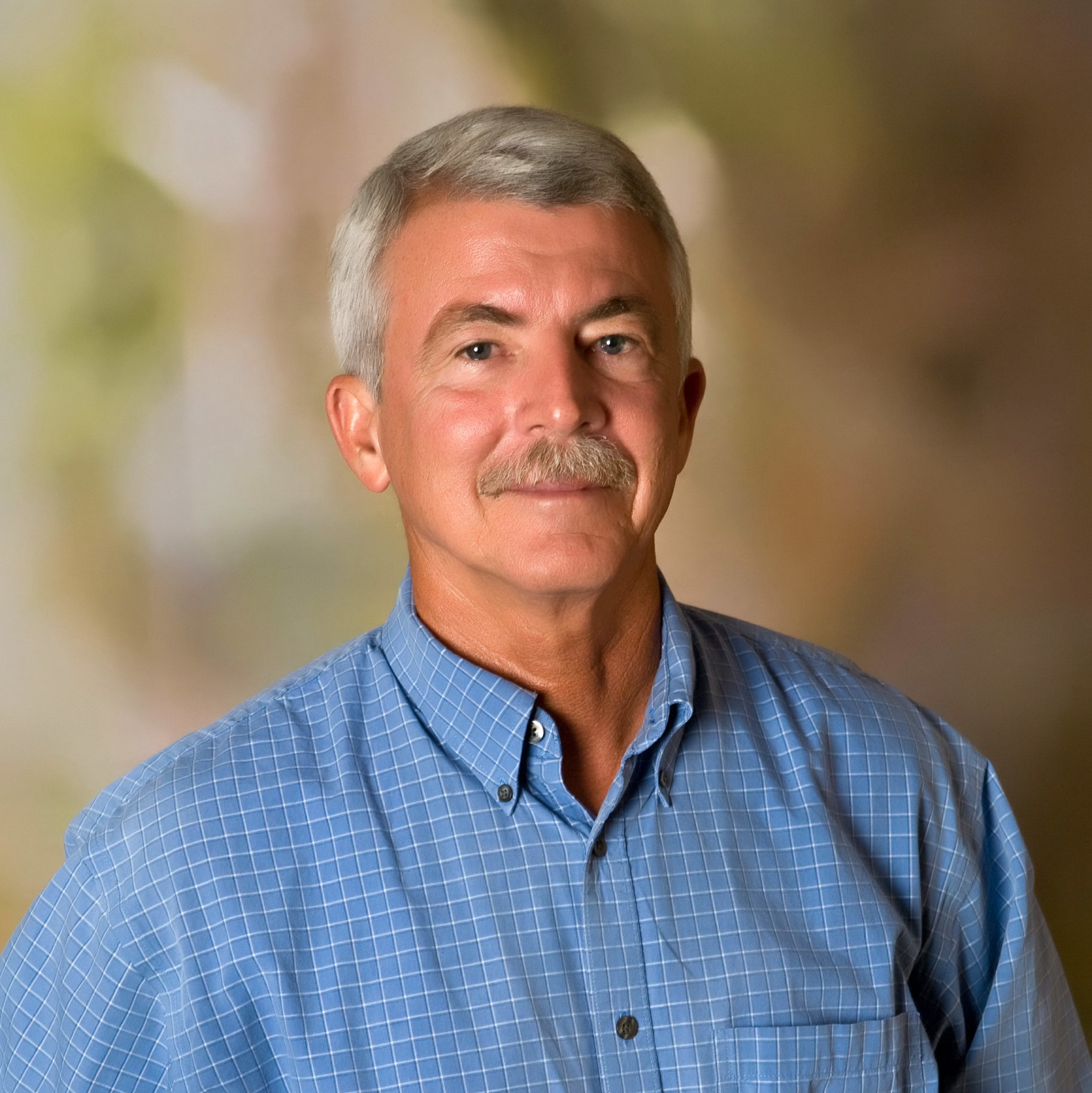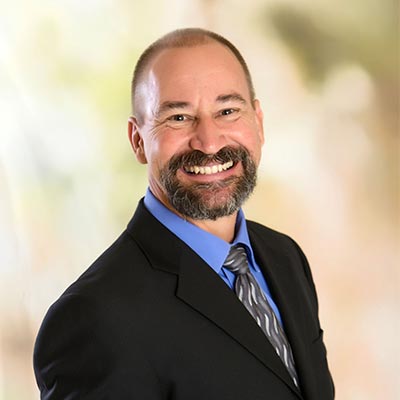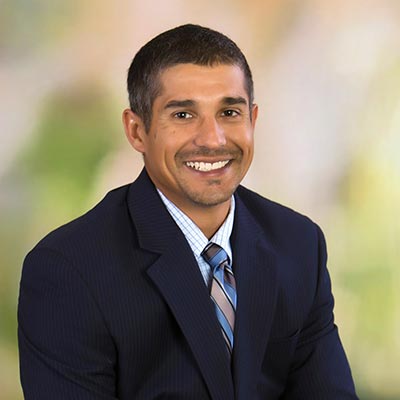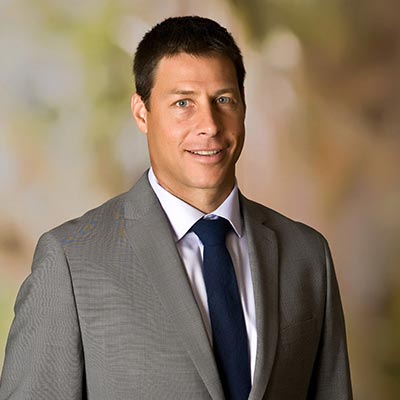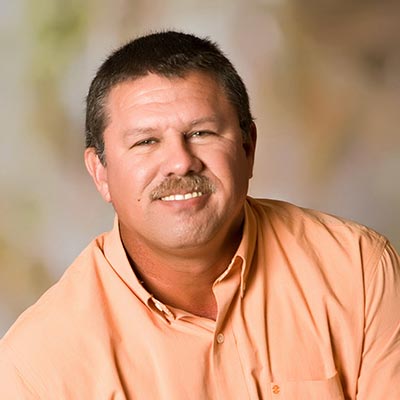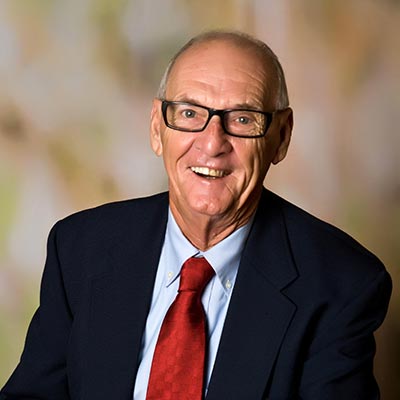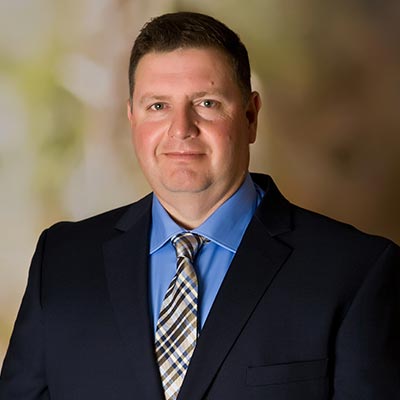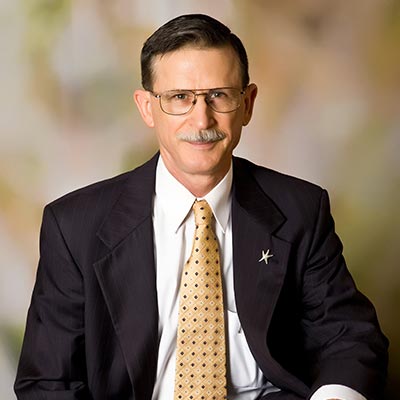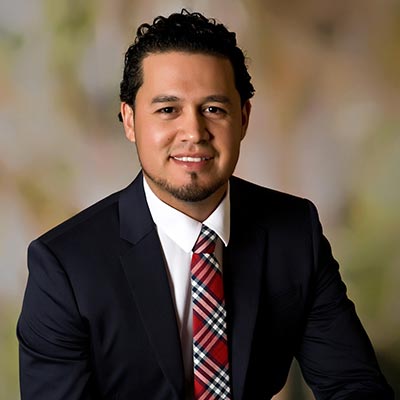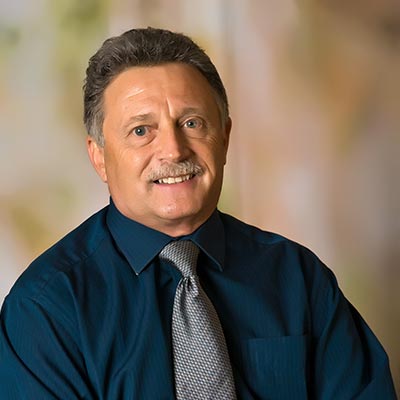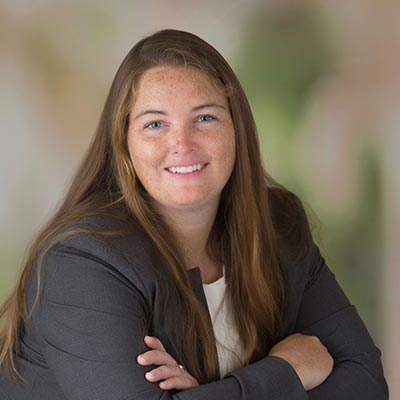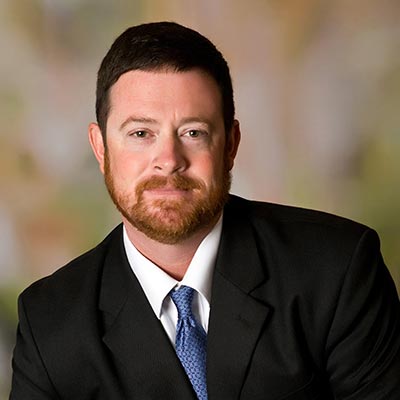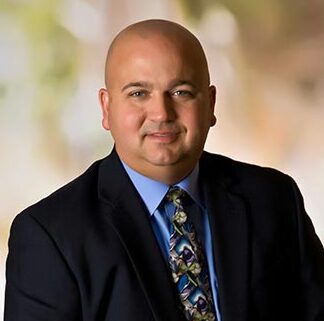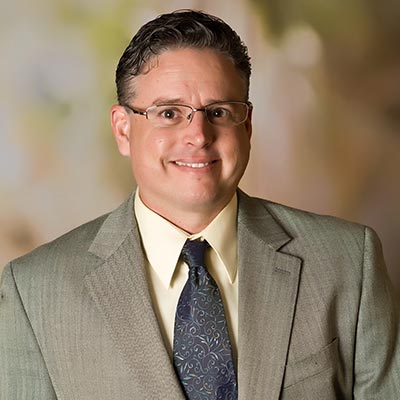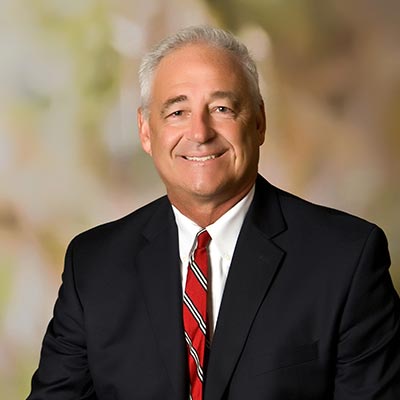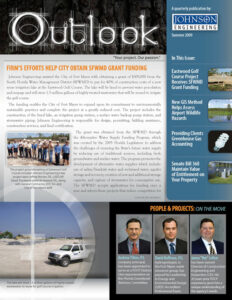 FIRM’S EFFORTS HELP CITY OBTAIN SFWMD GRANT FUNDING
FIRM’S EFFORTS HELP CITY OBTAIN SFWMD GRANT FUNDING
Johnson Engineering assisted the City of Fort Myers with obtaining a grant of $309,000 from the South Florida Water Management District (SFWMD) to pay for 40% of construction costs of a new reuse irrigation lake at the Eastwood Golf Course. The lake will be lined to prevent water percolation and seepage and will store 1.5 million gallons of highly treated wastewater that will be reused to irrigate the golf course.
The funding enables the City of Fort Myers to expand upon its commitment to environmentally sustainable practices and complete the project at a greatly reduced cost. The project includes the construction of the lined lake, an irrigation pump station, a surface water back-up pump station, and stormwater piping. Johnson Engineering is responsible for design, permitting, bidding assistance, construction services, and final certification.
The grant was obtained from the SFWMD through the Alternative Water Supply Funding Program, which was created by the 2005 Florida Legislature to address the challenges of ensuring the State’s future water supply by reducing use of traditional sources, including fresh groundwater and surface water. The program promotes the development of alternative water supplies which include: use of saline/brackish water and reclaimed water, aquifer storage and recovery, creation of new and additional storage capacity, and capture of stormwater for consumptive use. The SFWMD accepts applications for funding once a year and selects those projects that reduce competition for water, achieve goal-based water conservation targets, minimize impact on the environment, and provide the biggest “bang for the buck”— conserving the most water for the lowest cost. These funds are available for cities, utilities, homeowners associations, community development districts, and other water users and suppliers.
The SFWMD has indicated that funding for the Alternative Water Supply Program was not appropriated by the 2009 Legislature for Fiscal Year 2010 due to economic conditions. The lack of funds will make the next round of funding more competitive. If you are interested in learning if your project may quality for SFWMD Alternative Water Supply Funding, please contact Johnson Engineering’s utility group project manager, David Trouteaud at 239.461.2438 or [email protected].
_____________________________________________________________
GIS METHOD HELPS ASSESS AIRPORT WILDLIFE HAZARDS
The conflict between birds and planes has always been a hot topic in the civil and military aviation world. Periodically the general public is reminded of the hazards birds can pose to aviation; most recently with the near tragedy on the Hudson River. There probably was not one person watching the news January 15, 2009 who did not breathe a sigh of relief when we were told everyone was safely off that plane; now it is time to learn from that incident.
We know through experience and through data collected in the Federal Aviation Administration (FAA) National Wildlife Strike Database that different species pose varying levels of threat to aircraft depending on their size, flocking habits, and the type of habitats to which they are attracted.
Here in South Florida the wildlife that can be of greatest risk are deer, eagles, vultures, sandhill cranes, ducks, osprey, herons, and hawks. Deer graze in open fields; eagles seek high perches to hunt; vultures roost in tall open trees; cranes, ducks, and herons feed in the shallow margins of ponds, lakes or canals; these are all habitats that can occur on or near airport properties.
Our environmental team is working with airports to identify the areas of risk around their airport, which allows them to make management decisions accordingly. We have four ecologists who have completed the FAA wildlife hazard management training and have conducted wildlife hazard assessments (WHA) for airports throughout Florida. The primary goal of a WHA is to identify problematic areas that may attract hazardous wildlife to an airport and/or surrounding property. No specific assessment protocol is currently provided by the FAA to quantify wildlife hazards.
Our team developed an innovative methodology to capture and analyze wildlife data using GIS technology. We also developed a formula for wildlife species or species groups representing hazard and risk using Relative Hazard Scores, as per FAA Advisory Circulars.
The result is a tool which shows areas of hazardous wildlife concentration, classified by risk. This tool allows the user to query the data and create maps depicting specific attributes. This method can be utilized by airports to define quantifiable benchmarks, and provide objective metrics to assess the success of wildlife hazard management programs.
On September 14, 2009, Johnson Engineering ecologist, Anik Smith, will be presenting this GIS methodology at the 2009 Bird Strike North America Conference in Victoria, BC. For more information on airport wildlife hazards, please contact Anik Smith at 239.461.3327 or [email protected].
_____________________________________________________________
OFFERING GREENHOUSE GAS ACCOUNTING
Businesses and government entities are turning towards a new form of accounting to help take advantage of growing opportunities related to sustainability and the “green” movement, and reducing future risks related to energy use and greenhouse gas emissions. Greenhouse gas accounting is an evaluation and quantification of the sources and amounts of greenhouse gas (GHG) emissions and/or offsets for which an organization is responsible. The most common of the six GHGs is carbon dioxide; the other five GHG categories included in an inventory are methane, nitrous oxide, hydrofluorocarbons, perfluorocarbons, and sulfur hexafluoride.
Although GHGs are not currently regulated in the United States or Florida, there are several reasons for conducting a GHG inventory. Inventories help to identify ways to reduce waste and cost, form a baseline for tracking performance, and can be used to set goals for corporate social responsibility and improve competitiveness. Additionally, inventories are necessary for participating in GHG emission markets and reporting programs, as well as for assessing liabilities associated with future legislation.
Federal and state policies are expected to move forward within the next year, with goals to reduce GHG emissions, while also increasing energy efficiency. Other incentives for reducing GHGs are expected through competitive funding opportunities. Already we are seeing funding opportunities, as a result of the American Recovery and Reinvestment Act, which require the quantification of GHG emission reductions for proposed projects.
Our environmental team is prepared to assist our clients in further understanding GHG accounting. With training from the Greenhouse Gas Management Institute, the most highly recognized international training program for GHG accounting and verification, we are prepared to provide you with a defensible assessment of your organizational or project-level greenhouse gas emissions, based on the most up to date methodology.
If you have questions about greenhouse gas accounting, or if you would like a proposal to perform a greenhouse gas inventory or related work, please contact Johnson Engineering environmental scientist, Jaime Boswell at 239.461.2449 or [email protected].
_____________________________________________________________
WATER USE ACCOUNTING SERVICES
Documentation of a reliable, repeatable water use accounting system is commonly required by limiting conditions in water management district permits. This often consists of checking flowmeter calibration, or calculating flow through closed pipes and open channels. Periodic calibration checks are necessary to confirm that water use accounting is accurately reported to regulatory agencies. Our team of water resource professionals are manufacturer trained and approved by the SFWMD and SWFWMD to verify calibration.
DEWATERING PERMIT SERVICES
The South Florida Water Management District and Southwest Florida Water Management District often require water quality monitoring and reporting as part of the limiting conditions for dewatering permits. The monitoring may include:
- water table elevations
- turbidity sampling
- chloride sampling
- specific conductance
Johnson Engineering provides all of the services above and more to help fulfill permit requests. For more information on Water Use Accounting or Dewatering Permit Services, please contact Tim Denison at 239.461.2458 or [email protected].
_____________________________________________________________
MAINTAIN THE VALUE OF ENTITLEMENT ON YOUR PROPERTY FOR an EXTRA TWO YEARS
Governor Crist has signed Senate Bill 360 that allows state and local government agencies to extend permits for two years, upon agency approval as outlined in the bill.
The holder of a valid DEP or Water Management District Environmental Resource Permit (ERP), expiring between 9/1/08 and 1/1/12, is eligible for a two year permit extension. Other permits may also be eligible for two-year extensions including:
To be eligible, permit holders must notify the authorizing agency in writing no later than December 31, 2009, with specific information on the permit they are seeking to extend and plans for utilization of the permit itself. Johnson Engineering is set to assist you with the requests for permit extensions, communicating with local and state government agencies, and obtaining written authorizations on the extensions. Please contact Johnson Engineering principal planner, Debi Pendlebury at 239.461.2439 or [email protected] to get this important process started.
- Building Permit
- Development Orders
- Zoning Permit
- Subdivision Approval
- RezoningCertification
- Special Exception
- Variance
- Any other official action of local or state government having the effect of permitting the development of land
_____________________________________________________________
People & Projects: ON THE MOVE
Andrew Tilton, P.E., company principal, has been appointed to serve as a FDOT District One representative on the Florida Greenbook Advisory Committee.
David Hoffman, P.G., hydrogeologist, in the Fort Myers water resources group, has passed his Leadership in Energy and Environmental Design (LEED) Accredited Professional Exam.
James “Vee” Lofton, has been named Director of Construction Engineering and Inspection (CEI). His 20 years prior FDOT experience gives him a unique understanding of the agency’s needs.








